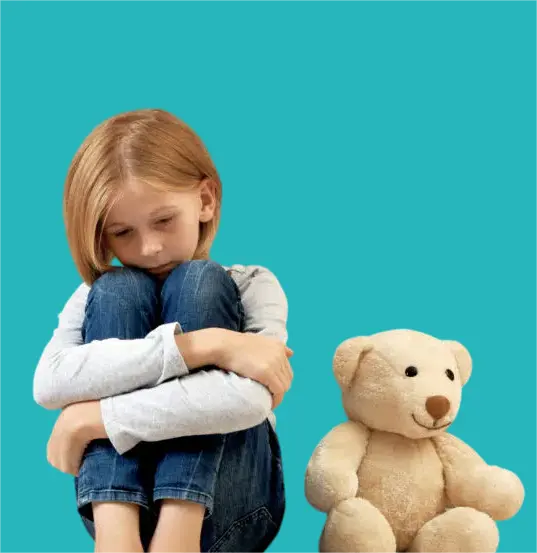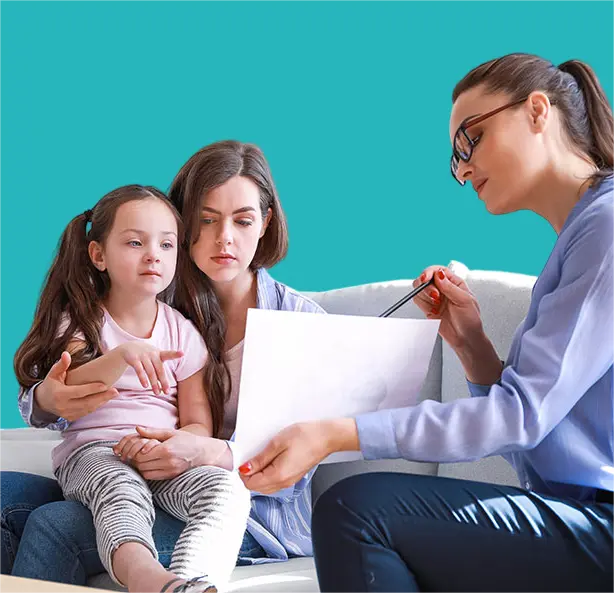Some children face significant difficulties interacting with others and feel fearful or extremely nervous when speaking in public or participating in social activities. This condition is known as social phobia, a psychological disorder that may begin in childhood and affect a child's educational and social development.
Ignoring this problem can lead to serious complications in the future. Therefore, it is essential to understand its causes, symptoms, and ways to deal with it, as it is not ordinary shyness, but rather a condition that requires special attention.
What is social phobia in children?
Social phobia is a type of anxiety disorder in which a child experiences an excessive fear of social situations in which they may be judged by others. The child may fear speaking in front of the class, playing with peers, or even interacting with adults. It differs from normal shyness in that it affects the child's daily ability to learn, interact, and develop.
Causes of social phobia in children

There are several factors that cause social phobia in children, including:
- Genetic factors, a family history of anxiety or psychological disorders.
- Parenting styles such as excessive harshness or overprotection from parents.
- Negative experiences such as being bullied, ridiculed, or experiencing early social failure.
- Self-confidence issues, feeling inferior or unloved.
- Environmental factors, living in an environment lacking social interaction or positive communication.
Symptoms in Children with Phobias
There are several symptoms that indicate that children have social phobia, including:
- Avoiding social situations such as school parties or playing with other children.
- Crying or tantrums before going to school.
- Speaking in a very low voice or remaining completely silent in the presence of strangers.
- Blushing, sweating, or a rapid heartbeat when speaking with others.
- Extreme clinginess to parents and a reluctance to be away from them.
Methods for Diagnosing Social Phobia in Children
Social phobia is diagnosed in several ways, including:
- Psychological interviews with the child and parents to understand the behavior and when it began.
- Social anxiety assessment questionnaires conducted by a psychologist.
- Observing the child in social situations and analyzing their reactions.
- Ruling out other problems such as speech disorders or autism.
Potential Complications of Social Anxiety in Children
Children may experience several complications as a result of the condition, including:
- Poor academic achievement due to fear of participation.
- Difficulty forming real friendships.
- Increased risk of depression in adolescence.
- Social isolation and a tendency toward loneliness.
- Poor communication skills in the future, both at work and in life.
Medications that Can Be Used in Treatment
Several medications are available to treat social phobia in children, including:
- Some anti-anxiety medications, such as selective serotonin reuptake inhibitors (SSRIs), are prescribed in moderate to severe cases.
Important Warning: Please do not take any medication without consulting a specialist psychiatrist.
Different Methods of Treating Social Anxiety in Children

There are several methods of treatment that are considered better than medication, including:
- Cognitive behavioral therapy helps the child change negative thoughts.
- Training the child in social skills, such as initiating conversation and problem-solving.
- Therapeutic play sessions enhance self-confidence and reduce stress.
- Gradually involving the child in group activities.
Family counseling helps parents support their child. Ways to Prevent a Child from Developing Social Anxiety
There are several ways to help prevent a child from developing social phobia, including:
- Encouraging the child to speak and express their feelings freely.
- Avoiding criticism and ridicule, especially in front of others.
- Teaching them to confront social situations rather than avoiding them.
- Building their self-confidence through praise and encouragement.
- Don't pressure them to participate, but rather support them gradually.
How does social phobia affect children's lives?
Social phobia in children has a significant impact on life in general, as it:
- Leads the child to live in constant fear of interacting with their surroundings.
- Deprives them of many educational and recreational opportunities.
- Prevents them from discovering their abilities and talents.
- Weaken their relationships with others and increases their sense of loneliness.
- It negatively impacts their emotional and psychological development.
The Role of Parents in Helping Their Child Overcome Phobia
Parents have an important role in improving the condition of their affected child by:
- Providing a safe, encouraging, and loving environment.
- Recognizing early signs and intervening in a timely manner.
- Collaborate with the school and a therapist to provide support.
- Teach the child how to deal with social situations.
- Avoid threatening or coercive methods.
Article Summary
Social phobia in children is a psychological disorder that significantly impacts their daily lives and their social and emotional development. Its causes include genetics, negative experiences, and parenting styles. It manifests itself through behaviors such as avoiding interaction and extreme fear of people.
It can be diagnosed through behavioral observation and specialist consultation. Treatment includes behavioral therapy and medication in some cases, along with parental and school support. Through awareness and early intervention, the child can overcome this disorder and grow with confidence and stability.